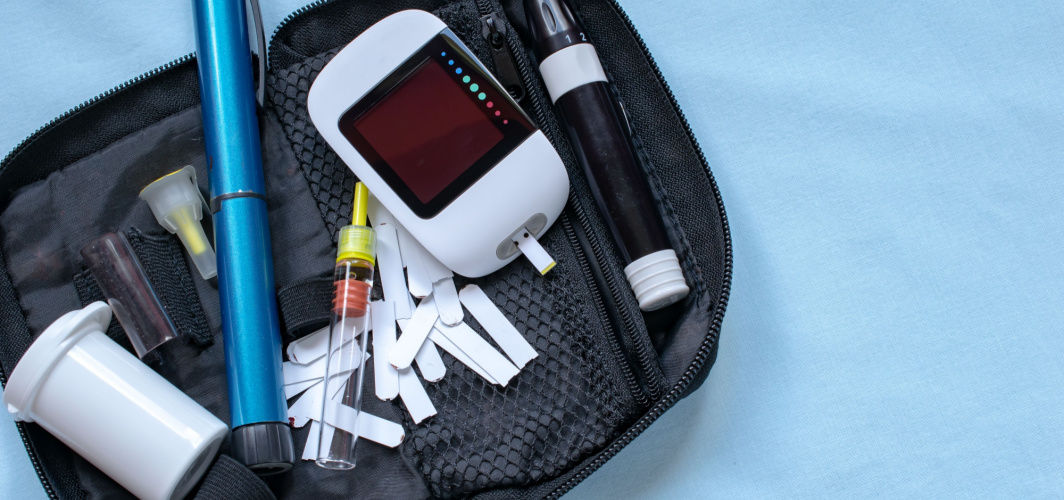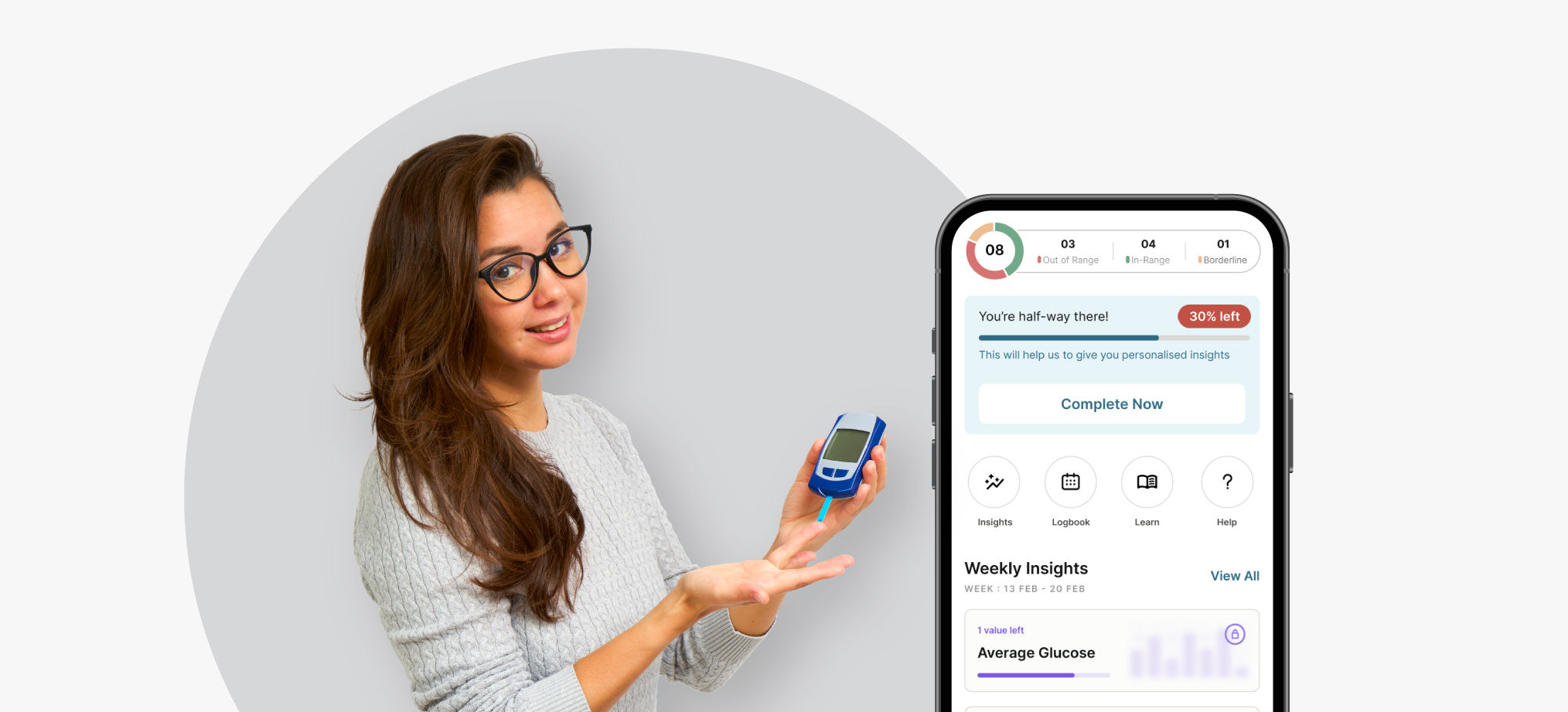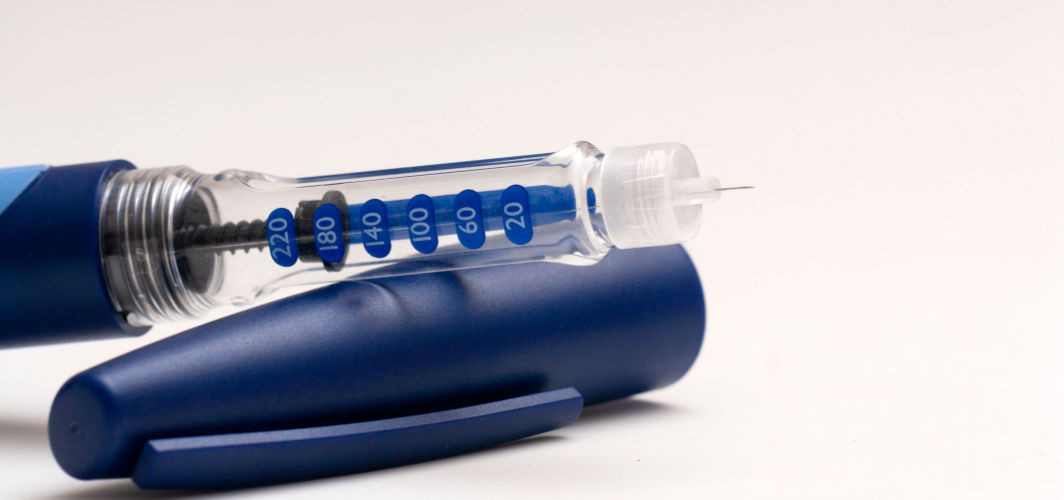Diabetes Management
Can One Develop Diabetes at a Young Age?
3 min read
By Apollo 24|7, Published on - 11 October 2023
Share this article
0
0 like

As per a recent study, one in four people under the age of 25 suffers from Type-2 diabetes, while approximately 95,600 children below the age of 14 are affected by Type-1 diabetes, as reported by the Indian Council of Medical Research (ICMR). In this blog, we'll explore the different types of diabetes that can affect teenagers and the risk factors associated with its development.
Types of Diabetes in Young People
Type 1 and Type 2 diabetes are quite common in young people these days. Let’s delve deeper to understand which types of diabetes primarily affect these people:
- Type 1 Diabetes: Type 1 diabetes, once known as juvenile diabetes, can develop at any age including during adolescence. It is an autoimmune condition that occurs when the immune system destroys insulin-producing beta cells in the pancreas. Due to this, individuals with Type 1 diabetes have little to no insulin production and need lifelong insulin therapy. The onset of Type 1 diabetes in teenagers often occurs suddenly, with symptoms like extreme thirst, frequent urination, unexplained weight loss, and fatigue.
- Type 2 Diabetes: In Type 2 diabetes, your body does not produce enough insulin or utilise it properly leaving the glucose to stay in your blood. Although Type-2 diabetes is associated with adults, it is on the rise in teenagers too with obesity, physical inactivity, unhealthy diet, and genetics playing a major role.
Risk Factors for Diabetes in Teenagers
Several factors can increase the risk of diabetes in teenagers:
- Family History: A family history of diabetes, whether Type 1 or Type 2, can elevate the risk for teenagers.
- Obesity: Excess body weight, particularly when concentrated around the abdomen, is a significant risk factor for Type 2 diabetes in adolescents.
- Sedentary Lifestyle: Lack of physical activity and prolonged periods of sitting or screen time can contribute to the development of diabetes.
- Unhealthy Diet: Consuming a diet high in sugary beverages, processed foods, and unhealthy fats can increase the risk of diabetes.
- Puberty: Hormonal changes during puberty can affect insulin sensitivity, making teenagers more susceptible to diabetes.
Prevention and Management
Preventing diabetes at a young age and managing the condition, if it develops, is crucial for their long-term health:
- Maintain a Healthy Lifestyle: Adopting a balanced diet, engaging in regular physical activity, and improving sleeping habits can reduce the risk of Type 2 diabetes.
- Regular Check-ups: Routine medical check-ups can help monitor blood sugar levels and identify diabetes in its early stages.
- Family Support: Family plays a vital role in supporting one’s efforts to prevent or manage diabetes. Promoting healthy habits as a family unit can significantly reduce the risk of a sedentary lifestyle and street food consumption. This in turn can lead to prevention and a better management of diabetes.
- Education: Educate yourself and your dear ones about the risk factors and symptoms of diabetes to encourage them to seek medical attention if needed.
Conclusion
Diabetes is not limited to individuals in their 30s; teenagers, children, and those below 25 years of age can also develop the condition. Type 1 and Type 2 diabetes are both potential diagnoses with risk factors including family history, obesity, a sedentary lifestyle, an unhealthy diet, and hormonal changes during puberty. Early detection, prevention through a healthy lifestyle, and family support are essential in managing diabetes.
Diabetes Management
Leave Comment
Recommended for you

Diabetes Management
5 Essential Products Every Diabetic Should Have
The first thing to own for any individual diagnosed with diabetes is a blood glucose meter. Besides, a glucometer, test trips and lancets are the most important things required to monitor blood sugar levels. The next important thing is insulin or emergency medication supplies to prevent hypoglycemia. A diabetic should also keep a glucagon emergency kit to manage severe hypoglycaemia. A medical identification bracelet that alerts others of an individual's condition in emergencies is also important. These items are essential for effective diabetes management and safety.

Diabetes Management
Manage Your Diabetes Like A Pro With Apollo 24|7's 12-Week EMPOWER Programme
Diabetes is one of the most common and widespread lifestyle diseases, affecting millions of people worldwide. Keeping the condition under control is a very challenging task. The Diabetes Management Programme by Apollo 24|7 can help you learn how to manage your condition on your own. Read on to learn how.

Diabetes Management
What are the Factors that Influence Insulin Action?
Insulin action refers to the ability of insulin to regulate blood sugar levels and various metabolic processes in the body. Insulin action is influenced by factors like, your weight, physical activity, diet, hormones, medications, stress, sleep, age and genetics. Insulin sensitivity varies among individuals and can be affected by lifestyle and genetic predispositions. Maintaining a healthy lifestyle through diet, exercise, and stress management is essential for optimal insulin action and metabolic health.
Subscribe
Sign up for our free Health Library Daily Newsletter
Get doctor-approved health tips, news, and more.
Visual Stories

8 Fruits That are Incredibly Healthy for Diabetes
Tap to continue exploring
Recommended for you

Diabetes Management
5 Essential Products Every Diabetic Should Have
The first thing to own for any individual diagnosed with diabetes is a blood glucose meter. Besides, a glucometer, test trips and lancets are the most important things required to monitor blood sugar levels. The next important thing is insulin or emergency medication supplies to prevent hypoglycemia. A diabetic should also keep a glucagon emergency kit to manage severe hypoglycaemia. A medical identification bracelet that alerts others of an individual's condition in emergencies is also important. These items are essential for effective diabetes management and safety.

Diabetes Management
Manage Your Diabetes Like A Pro With Apollo 24|7's 12-Week EMPOWER Programme
Diabetes is one of the most common and widespread lifestyle diseases, affecting millions of people worldwide. Keeping the condition under control is a very challenging task. The Diabetes Management Programme by Apollo 24|7 can help you learn how to manage your condition on your own. Read on to learn how.

Diabetes Management
What are the Factors that Influence Insulin Action?
Insulin action refers to the ability of insulin to regulate blood sugar levels and various metabolic processes in the body. Insulin action is influenced by factors like, your weight, physical activity, diet, hormones, medications, stress, sleep, age and genetics. Insulin sensitivity varies among individuals and can be affected by lifestyle and genetic predispositions. Maintaining a healthy lifestyle through diet, exercise, and stress management is essential for optimal insulin action and metabolic health.